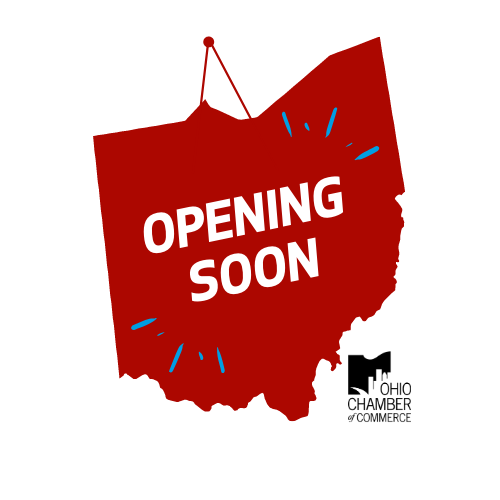With his announced target date for reopening Ohio business on May 1 only four days away, today Gov. Mike DeWine spelled out the details of his reopen plan. As expected, the plan outlines a phased-in approach, beginning with health care providers being allowed to perform all procedures and surgeries that do not require an overnight stay in a hospital on Friday, May 1.
Then, starting on Monday, May 4, manufacturing, distribution, construction, and general office environments can reopen, followed by most consumer, retail and service-oriented businesses on Tuesday, May 12. All businesses will be subject to five broad, safe workplace protocols when they reopen, with each industry cluster also having to comply with additional, industry-specific measures.
Other types of businesses, such as restaurants and bars, casinos, fitness centers, barber shops and hair salons, and amusement parks must remain closed until further notice; no reopen target date was given. The governor indicated that exactly when they’ll be allowed to reopen will be determined by how well the spread of the virus is contained.
In addition, businesses whose employees can work remotely are being strongly encouraged to continue to do so when possible. More broadly, the stay at home order remains in place, and gatherings of more than ten people will still not be allowed.
Given the dire state of Ohio’s economy, the Ohio Chamber applauds the governor for recognizing the urgent need to re-open businesses. Certainly, things are not going to return to pre-COVID-19 “normal” anytime soon, but with some businesses – especially small businesses – facing irreversible devastation, we also need to try to get the economy back on track.
While the stay at home order, social distancing, and other measures have helped slow the spread of COVID-19 over the past month, Gov. DeWine underscored how vital the new safe workplace requirements are to minimizing the risk of a significant spike in new cases, and that they are designed to protect the health of employees and customers and to continue to control the spread of the virus. The required responsible workplace protocols include:
- Mandatory face coverings for all employees and customers at all times;
- Daily health assessments by employers and employees;
- Good hygiene practices, including hand-washing and social distancing;
- Regular workplace cleaning and sanitizing, including between shifts; and
- Capacity limitations, including maximum capacity of no more than 50% of fire code building occupancy and appointment setting when possible.
The other, industry-specific mandatory practices and best practices can be seen here, though a common element is that both employees and customers must wear face coverings at all times in all environments. Exactly how long it takes to incorporate the mandatory new protocols will be different for each business, and it will take some businesses longer than others. Nonetheless, businesses are anxious to demonstrate they can resume operations safely and responsibly.
